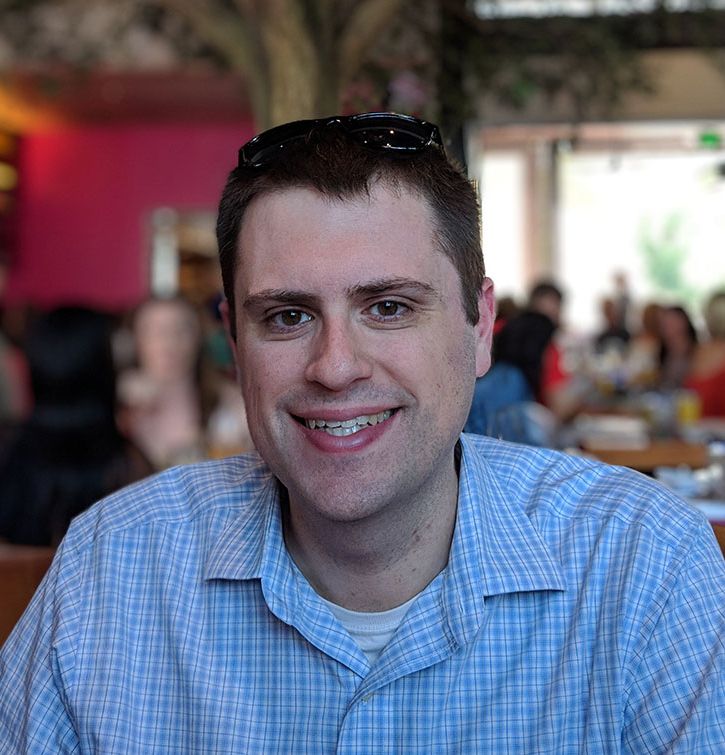Healthcare Systems Engineering professional master’s alum Michael Kimball ’13 M.Eng. helps hospitals model data to increase efficiency and provide better care
When St. Luke’s University Health Network wanted to review the productivity of their emergency departments, they turned to Michael Kimball.
Kimball, a graduate of Lehigh University’s Healthcare Systems Engineering (HSE) professional master’s program, and his team built a computer simulation model that looked at patient flow for every hour, every day of the week, including level of care required. They also examined staffing for those time periods.
Because emergencies, by their nature, are unpredictable, says Kimball, the model included “risk” scenarios that could overwhelm staff and compromise patient care or leave them with a lot of down time.
“The model was designed to be flexible enough that the hospital leadership team could understand how likely they are to be under- or overstaffed based on their planned schedule,” he says. “The approach we have put together has been replicated across all of our emergency departments.”
Kimball joined the Bethlehem, Pa.–based health system in 2014 as the founding director of management engineering after completing Lehigh’s HSE program—a 30-credit track in the P.C. Rossin College of Engineering and Applied Science that teaches students systems engineering tools and methodologies and how to apply them to health care delivery. The program can be completed in as little as 10 months or spread out over a longer timeline to accommodate working professionals.
At St. Luke’s, he leads a team tasked with productivity management and workflow efficiency. The job entails building simulation models that offer guidance on labor usage, cost reduction strategies, scheduling approaches, and operational workflow for 10 hospitals and more than 250 physician practices in eastern Pennsylvania and New Jersey.
Kimball originally landed in the health care sector by chance, taking an IT position at the Greater Lawrence Family Health Center in Massachusetts following his undergraduate studies in computer science and philosophy.
In that role, he worked alongside a veteran staffer who ran reports to extract financial data from health records at the federally designated center that serves low-income clients.
Her knowledge of the complexities of the health care system intrigued Kimball. Soon, he was using his tech background to help his co-worker analyze data to improve patient outcomes and streamline costs.
In one initiative, they looked at the success rate of diabetic patients, flagging those who couldn’t keep hemoglobin A1c levels in check for special intervention.
“It changed the way that way those doctors were actually able to engage with their patients,” Kimball says.
To advance his career, Kimball considered going back to school for an MBA, but then he heard about Lehigh’s program and felt it would differentiate his skills and create pathways to continue in the health care field.
“It seemed like a cool mix where I could really expand into areas that I was enjoying,” he says.
Kimball particularly liked that the program included classes tailored to the health care industry on fiscal management and quality control. The engineering component, including classes on design experiments, models, and simulation, was the perfect complement, teaching him how to run analyses on a macro scale.
“I was able to take the data and computer science background I had and blend it with the engineering skills that I was building through Lehigh’s HSE program,” says Kimball.
And, more than five years post-graduation, he adds, “I use my degree all the time.”
For St. Luke’s, the increased productivity that stemmed from Kimball and his team’s work helped the network achieve the lowest cost per adjusted occupied bed in the region and earn the IBM Watson Top 100 Hospitals designation for three years running.
For Kimball, the rewards of his efforts go beyond industry accolades. He says he finds true satisfaction in helping implement changes that lead to better care for patients and the overall operation of the health system.
“My specific role at St. Luke’s grants me the opportunity to learn about the entire spectrum of a complex health network,” he says. “I can walk into any of our buildings and see exactly who is impacted by what my team does and that makes the work particularly meaningful to me.”
—Katherine Reinhard '85G is a freelance contributor for the P.C. Rossin College of Engineering and Applied Science

